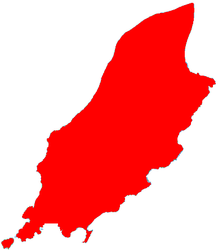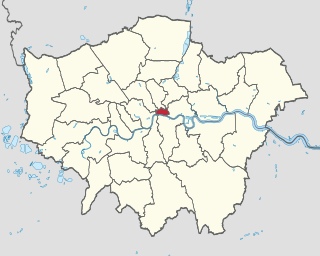
The City of London Police is the territorial police force responsible for law enforcement within the City of London, England, including the Middle and Inner Temples. The force responsible for law enforcement within the remainder of the London region, outside the city, is the much larger Metropolitan Police, a separate organisation. The City of London, which is now primarily a financial business district with a small resident population but a large commuting workforce, is the historic core of London, and has an administrative history distinct from that of the rest of the metropolis, of which its separate police force is one manifestation.
Chief constable is the rank used by the chief police officer of every territorial police force in the United Kingdom except for the City of London Police and the Metropolitan Police, as well as the chief officers of the three 'special' national police forces, the British Transport Police, Ministry of Defence Police, and Civil Nuclear Constabulary. The title is also held by the chief officers of the principal Crown Dependency police forces, the Isle of Man Constabulary, States of Guernsey Police Service, and States of Jersey Police. The title was also held, ex officio, by the president of the Association of Chief Police Officers under the Police Reform Act 2002. It was also the title of the chief officer of the Royal Parks Constabulary until this agency was disbanded in 2004.
Police ranks are a system of hierarchical relationships in police organisations. The rank system defines authority and responsibility in a police organisation, and affects the culture within the police force. Usually, uniforms denote the bearer's rank by particular insignia affixed to the uniforms.
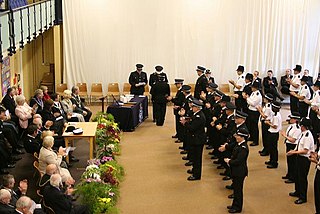
The Special Constabulary is the part-time volunteer section of statutory police forces in the United Kingdom and some Crown dependencies. Its officers are known as special constables.

Avon and Somerset Police is the territorial police force responsible for law enforcement in the five unitary authority areas of Bristol, Bath and North East Somerset, North Somerset, Somerset, and South Gloucestershire in South West England.
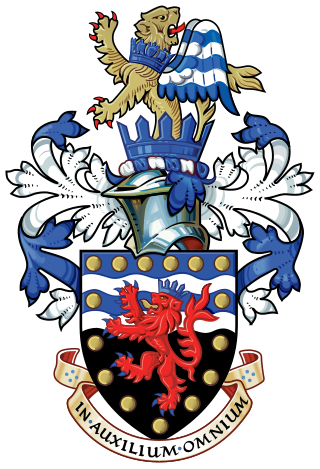
Devon and Cornwall Police is the territorial police force responsible for policing the ceremonial counties of Devon and Cornwall in South West England. The force serves approximately 1.8 million people over an area of 3,967 square miles (10,270 km2).
Deputy chief constable (DCC) is the second highest rank in all territorial police forces in the United Kingdom. The British Transport Police, Ministry of Defence Police, Civil Nuclear Constabulary, and the Isle of Man Constabulary each also has a DCC.
Neil Kinrade is the former Deputy Chief Constable of the Isle of Man Constabulary. He is well known for his part in unveiling the "Manx Bugging Scandal" of the late 1990s and 2000s, his subsequent suspension from duty and his clearing of his name, after taking a High Court Petition of Doleance action against the Chief Constable and the Minister of Home Affairs. He is a former Gambling Supervision Commissioner.

The Hampshire and Isle of Wight Constabulary is the territorial police force responsible for policing the counties of Hampshire and the Isle of Wight in South East England.

Sussex Police is the territorial police force responsible for policing in the whole of Sussex. Its jurisdiction covers the ceremonial counties of East Sussex and West Sussex. The force is headquartered in Malling House, Lewes, East Sussex.
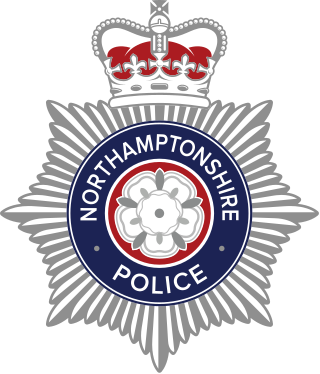
Northamptonshire Police is the territorial police force responsible for policing the county of Northamptonshire in the East Midlands of England, in the United Kingdom.
Mike Culverhouse was Chief Constable of the Isle of Man Constabulary from 1999 until his retirement on 31 December 2007. He took over as Chief Constable following the retirement of Robin Oake QPM and was the first ever Chief Constable of the Isle of Man to be appointed who did not previously hold ACPO rank, previously being a Chief Superintendent in the Merseyside Police.

The custodian helmet is a type of helmet worn predominantly by male police officers in the United Kingdom, within England and Wales, and certain other places around the world. First used by the Metropolitan Police in London in 1863, the BBC labelled the custodian helmet a "symbol of British law enforcement". They are worn by male constables and sergeants on foot patrol. A cultural icon, it has featured in films, TV series and other media involving British police.
Police uniforms and equipment in the United Kingdom vary enormously per force or service, and different uniforms and equipment is used for different situations. Both what is worn and what is carried have varied considerably from the inception of the earliest recognisable mainstream police services in the early 19th century. As various laws in the mid-19th century standardised policing in the United Kingdom, so too were uniforms and equipment. From a variety of home grown uniforms, bicycles, swords and pistols the British police force evolved in look and equipment through the long coats and top hat, to the recognisable modern uniform of a white shirt, black tie, reflective jackets, body armour, and the battenburg-marked vehicles, to the present-day Airwave Solutions radios, electric vehicles and tasers.

The Royal Montserrat Police Service is the police service of the British Overseas Territory island of Montserrat in the Caribbean.
A neighbourhood policing team (NPT), also sometimes known as safer neighbourhood team (SNT), is a small team of police officers and police community support officers who are dedicated to policing a certain community or area.
Liverpool Parks Police was a police force maintained by the Corporation of Liverpool to police the parks and open spaces owned by the city. The first record of "park constables" in Liverpool is from 1832, although members of the force were not sworn in as constables in their own right until 1882. The force was disbanded in 1972.

The Isle of Man Coastguard also known as the Manx Coastguard is the coastguard service of the Isle of Man Government. It is responsible for the provision of coastguard services throughout the Isle of Man, an independent Crown dependency located in the Irish Sea between England and Ireland. Its main responsibilities are coastal patrol, pollution control, and the provision of shore-based search and rescue services.
Penzance Borough Police was the police force for the borough and corporate town of Penzance, Cornwall, from 1836 to 1947. It was formed following the passing of the Municipal Corporations Act 1835, which reformed all UK boroughs, and stipulated that each appoint a Watch Committee to oversee a police force. The police force formed part of the commonality of the town's government, led by an elected Mayor, six aldermen and eighteen councillors.
The police in Canada's ranks differ according to the different police forces and depend on different laws at the federal, provincial, and municipal levels.

